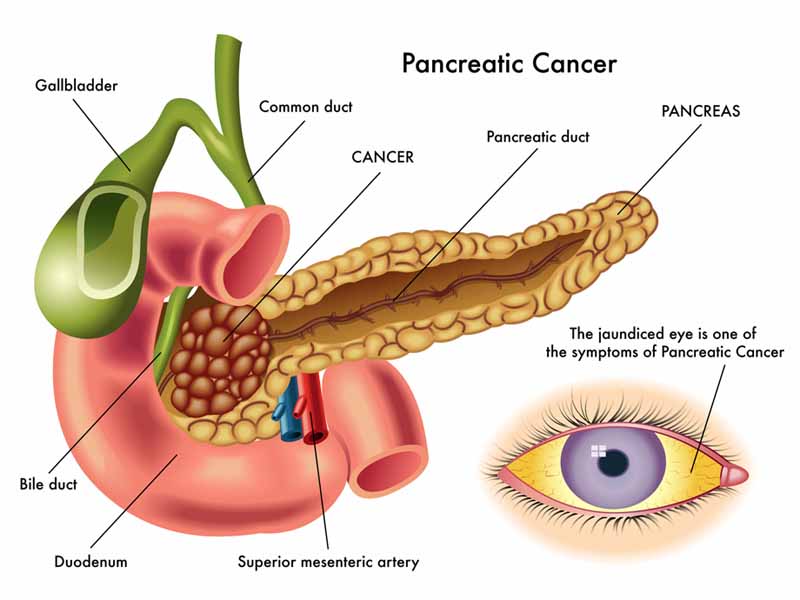USPSTF: Don't Routinely Screen Adults for Pancreatic Cancer
August 07, 2019 12:58 pm News Staff – On Aug. 6, the U.S. Preventive Services Task Force published a final recommendation statement and final evidence summary on screening for pancreatic cancer.
Based on current evidence, the USPSTF recommended against screening for pancreatic cancer in asymptomatic adults; this is a "D" recommendation.
Although uncommon overall, pancreatic cancer is a deadly disease -- ranking as the third most common cause of cancer death in the United States.
Sadly, most cases of pancreatic cancer aren't found early enough to be treated effectively, and outcomes are poor. The overall five-year survival rate for pancreatic cancer is only 9.3%, and even when found early and treated surgically, the average survival after diagnosis is only 36 months.
"Pancreatic cancer is an uncommon but devastating disease with low survival rates, even in those detected at early stages," said USPSTF member Chyke Doubeni, M.D., M.P.H., in a news release."Unfortunately, at the present time, screening for pancreatic cancer in people without any signs or symptoms would cause more harm than good and, therefore, should not be done."
The task force found no evidence to suggest that screening adults for pancreatic cancer improves patient outcomes. Furthermore, some tests for pancreatic cancer are invasive and can lead to pain, adverse reactions to anesthesia, false-positive results and, sometimes, pancreatitis.
Even if pancreatic cancer is found, followup treatment such as pancreatectomy can cause significant harms, including bleeding, weeks of recovery time and a small risk of death.
Overall, the task force determined, neither screening for pancreatic cancer nor treating screen-detected pancreatic cancer improves disease-specific morbidity or mortality, or all-cause mortality.
"Clinicians need to be able to find pancreatic cancer earlier in its development, when it is more treatable," said USPSTF member Chien-Wen Tseng, M.D., M.P.H., in the release. "The task force is calling for more research on effective and accurate screening tests that can detect pancreatic cancer earlier and that lead to fewer harms."
This final recommendation statement is consistent with the USPSTF's Feb. 5 draft recommendation and its 2004 final recommendation against screening for pancreatic cancer in asymptomatic adults, which the AAFP supported at the time.
It should be noted that this recommendation does not apply to adults who are at high risk for the disease because of a familial history of pancreatic cancer or other risk factors.
No other organizations recommend screening for pancreatic cancer in asymptomatic adults, the task force said.
Response to Public Comment
A draft version of this final recommendation statement was posted for public comment on the USPSTF website from Feb. 5 to March 4.
In response to commenters, the task force added information on survival rates for pancreatic cancer by stage, as well as information about the consensus guidelines for the management of intraductal papillary mucinous neoplasms of the pancreas and the accuracy (i.e., sensitivity and specificity) of those guidelines in predicting the presence of pancreatic cancer or high-grade dysplasia, to the final recommendation statement.
In addition, the USPSTF added data on longer-term followup of screening studies in patients with a high familial risk for pancreatic cancer.
A few commenters requested that the task force make a recommendation on screening in patients with a family history of pancreatic cancer or for those with an inherited genetic syndrome known to be associated with high risk of pancreatic cancer.
In response, the USPSTF clarified that these patient groups are outside the scope of this recommendation.
Up Next
The AAFP's Commission on Health of the Public and Science plans to review the USPSTF's final recommendation statement and evidence summary and will then determine the Academy's stance on the recommendation.
